Aboriginal and Torres Strait Islander readers are advised that the following blog may contain images and names of people who have died.
For centuries, colonisation and capitalism have been the most destructive of bedfellows. However, let us not forget that the systems and structures of capitalism and colonisation were designed, engineered and managed, not just by monarchies or the state, but by companies.
In the name of trade and commerce, the world’s capitalist conquistadores left behind long-lasting legacies; extracting, exploiting and trading on the lives (and resources) of others. Of course, resistance was always there and often brutally quashed, lest anyone (or anything) stand in the way of making a buck.

Image: Koskela exhibition – Strong Tiwi
While the wheels of change are slowly shifting as we try to design, engineer and manage businesses that stand for far more than just profit, dismantling racist colonial systems, policies, practices, and ideologies – both within ourselves and our organisations – takes focused, concrete and sustained action.
This National Reconciliation Week calls for us to ‘Be a Voice for Generations’, to ‘act today for a more just, equitable and reconciled country for all’. To be accountable business leaders and claim the mantle of ‘better business’, B Corps must bravely and tirelessly tackle racism, colonisation and its ongoing impacts, treading resolutely on the path to greater reconciliation and justice. Here are just some of the businesses across the movement who are taking on this vital work in our region and moving the dial for greater reconciliation.
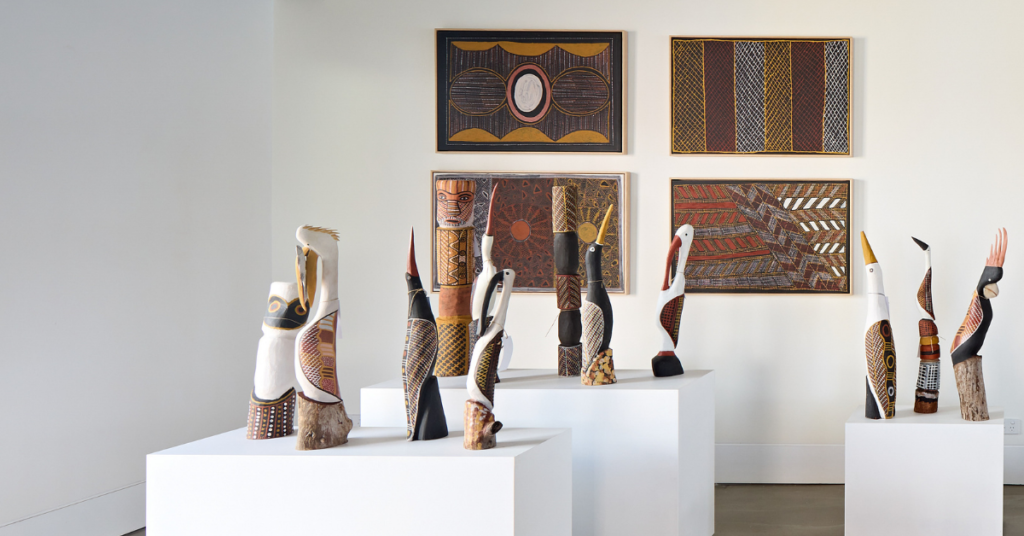
Image: Koskela exhibition – Strong Tiwi
Standing bravely against racism and injustice
B Corps believe in a new economy where all business is conducted as if people and place matter. We are grounded in the knowledge that we are responsible for each other and future generations, and this is a community that is deeply aware of our interdependence and shared responsibility to do better.
While B Lab has been a proponent of systemic change since day one, that change has historically been directed towards capitalism without nearly enough focus on its ‘conjoined twin’ (Kendi, 2019) and inseparable counterpart: racism. Because, if we want to have any hope of dismantling and rebuilding a more equitable and just economic system, we must start with anti-racist institutions.
Led on a global level by people like B Lab’s Director of Justice, Equity, Diversity & Inclusion, Dr. Ellonda Williams, and others, the gauntlet of radical change has been laid down:
“We embrace radical reorientation of our consciousness and will listen to the voices of Black, Brown, Indigenous and marginalised peoples to catalyse equitable outcomes for all…If it were easy, everybody would be doing it. But we aren’t everybody, and the world expects more — it deserves more.”
— Dr. Ellonda Williams (Statement from 2020)
Yet while we must be able to hold unified anti-racist approaches that encompass the pillars of justice at a global, systemic level, we must also commit to localised and specific understandings of how race, colonisation and capitalism coalesce in our context.
In Australia, this means first and foremost acknowledging the colonial history of land dispossession, violence, and racism against First Nations Peoples and taking meaningful steps towards reconciliation.
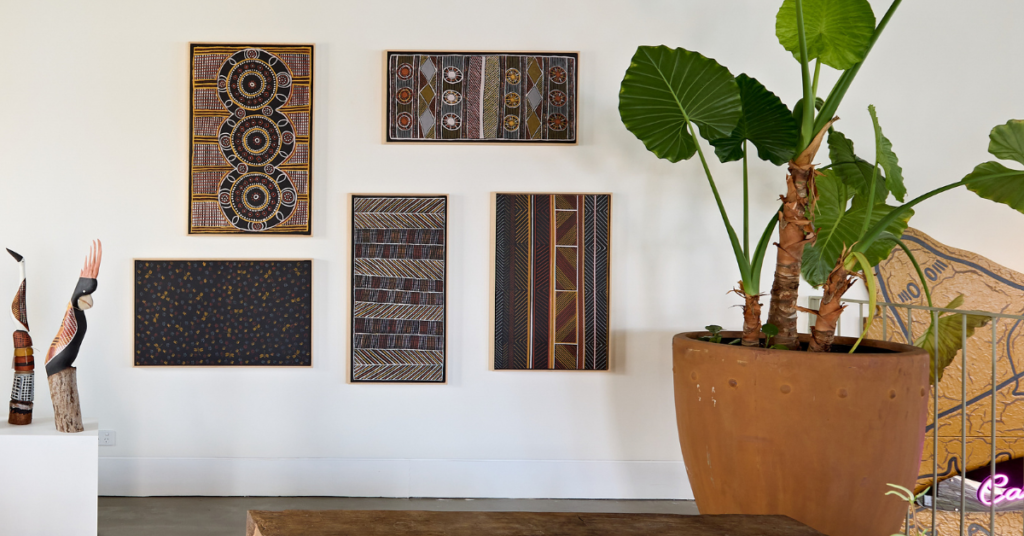
Image: Koskela exhibition – Strong Tiwi
Tackling the unfinished business of reconciliation
According to Reconciliation Australia, meaningful change on the path to reconciliation is based on and measured by five interrelated dimensions: historical acceptance; race relations; equality and equity; institutional integrity; and unity.
While many significant steps have certainly been taken, there is still so far to go:
“While generations of Australians have fought hard for meaningful change, future gains are likely to take just as much, if not more, effort.”
— Reconciliation Australia
For businesses, one key way that we can make meaningful change and embed decolonisation and reconciliation efforts into our every day is through a ‘RAP’ or Reconciliation Action Plan – a plan designed specifically for workplaces to embody the principles and purpose of reconciliation.
Based around the core pillars of relationships, respect and opportunities, RAPs aim to provide tangible and substantive benefits for Aboriginal and Torres Strait Islander peoples, increasing economic equity and supporting First Nations self-determination.
With four graduating types – Reflect, Innovate, Stretch and Elevate – these structures and strategies allow organisations to continuously develop their reconciliation commitments and translate commitments into tangible and measurable action.
While they are “not the sole solution to 230 years of colonisation,” as Karen Mundine, CEO of Reconciliation Australia shared recently, they are “a starting point for a more equitable and reconciled country” and a “fundamental element of any company’s approach to measuring their social and environmental impact”.
While an increasing number of B Corps are developing or implementing RAPs, or have significant commitments to reconciliation in place, there was no formalised mechanism to drive movement-wide change. Until now.
Sparking sustained action in the Australian B Corp movement
When the stakes are so high and the timeline so urgent, the desire to ‘do the right thing’ and not make any more egregious mistakes can become almost debilitating. But that is no excuse for inaction.
Instead, much like cultivating a continuous path to improving our social and environmental impact, we need to create safe and supportive spaces for businesses to properly unpack what meaningful change looks like to them and promote a culture where we own and quickly learn from our missteps. So, what could that look like in the Australian B Corp movement?
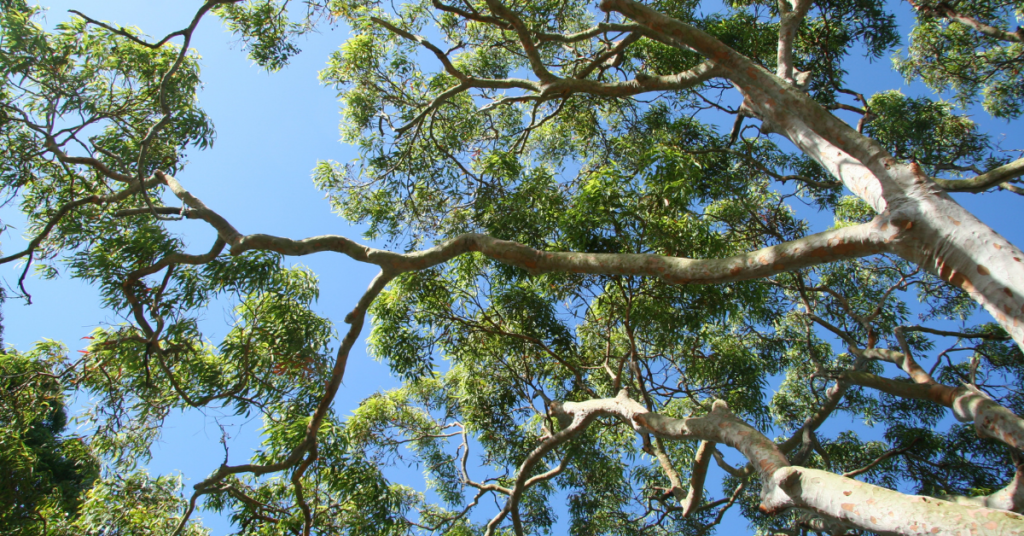
Image by LisainGlasses on Getty
Establishing a Reconciliation Impact Circle
Following conversations with B Corp Intrepid Travel, who were looking to connect with other B Corps who had RAPs, the idea sparked for a Reconciliation Impact Circle – a community of practice designed to exchange ideas, share learning and spark further action for reconciliation within the B Corp movement.
After an early call out to the community, an inaugural Reconciliation Impact Circle was established in early 2022, bringing together a cohort of eight Australian-based B Corps including Future Super, Koskela, T2, Intrepid, Code for Australia, Teachers Mutual Bank, Beyond Bank Australia, and BankVic.
Together with B Lab and Ngarrimili, a First Nations organisation that supports Aboriginal and Torres Strait Islander entrepreneurs and businesses, these B Corps began working together to explore existing challenges, share learnings and problem solve together, unpacking important topics from procurement strategy to cultural learning in practice.
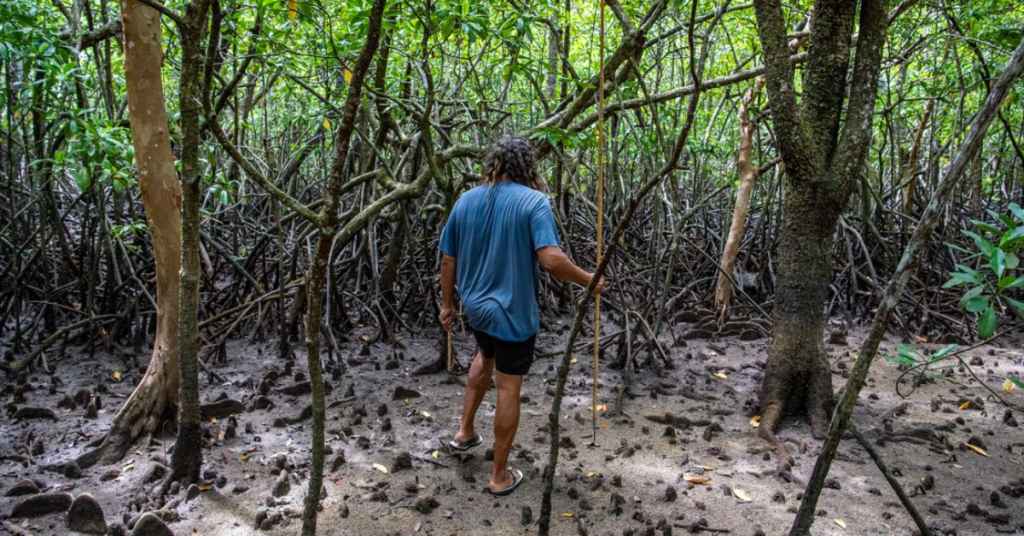
Image: Intrepid – Daintree experience with Kuku Yalanji guide
To help inspire others start — or continue — meaningful reconciliation work, these B Corps are committed to sharing their experiences along the way, including the changes occurring at each individual business.
Ahead of the release of some early findings, members from Intrepid, Future Super, Code for Australia, Beyond Bank, and Koskela have shared these initial insights to support others within the B Corp community, and beyond, in honour of National Reconciliation Week.
Learning from the RAP journey

After realising that, while they might have done a lot to empower communities around the world, there was still a lot for them to do here at home, Sara King, General Manager of Purpose at Intrepid, shares:
“In 2019, Reconciliation Australia endorsed our first RAP, which focused on listening, learning, sharing resources with our people, and partnering with more Aboriginal and Torres Strait Islander peoples, communities and organisations.
Then in 2020, they launched their second and more ambitious ‘Innovate’ RAP, which contains 90 actions aimed at advancing Intrepid’s contribution in four focus areas: relationships, respect, opportunities, and governance.
“We want to become a better and more supportive partner of First Nations People, and ultimately contribute towards a fairer and more just Australia. We’ve learnt a vast amount from the RAP experience – including in which areas we can have the most impact.
“At the same time, we also made a few important changes to our trips in Australia, such as stopping serving alcohol at sunset on our trips to Uluru. Travel and tourism are powerful ways for people to come together on Country, to share culture, perspectives and develop a shared understanding.”
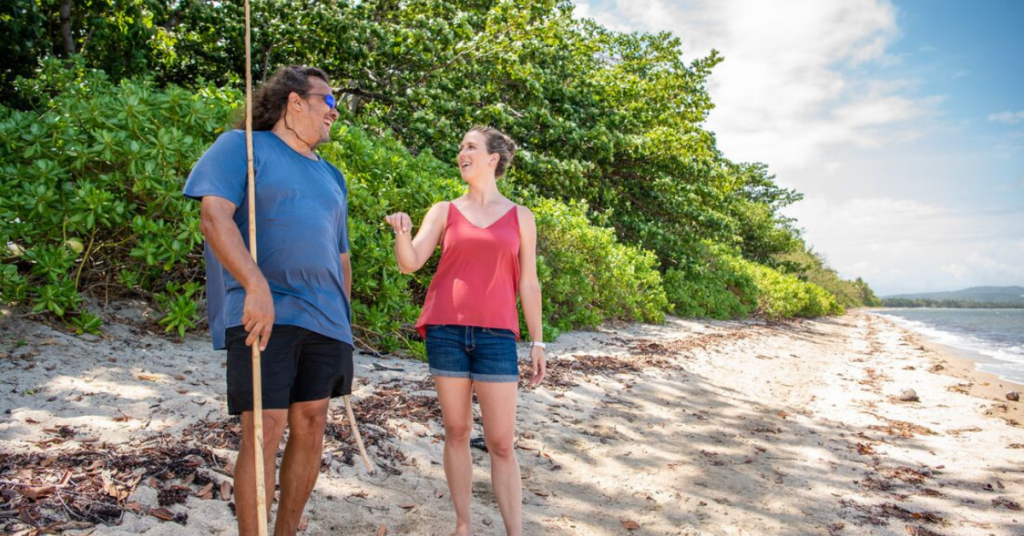
Image: Intrepid – Daintree experience with Kuku Yalanji guide
Find out more about Intrepid’s First Nations cultural experiences
Developing actionable goals and timelines for change
For Code for Australia, they knew as an organisation that they wanted greater diversity in their team, including Aboriginal and Torres Strait Islander peoples.
“We knew that an important step on that path was to develop a RAP, and make a formal statement of commitment to reconciliation including a strategy, actionable goals and timelines of how we plan to get there.”
Having started their RAP journey at the start of 2020, and launching their ‘Reflect’ RAP in January 2021, Cass shares that the RAP framework was a “really helpful guide”, particularly for them as a small organisation that “wasn’t sure where to start”.
She also shared that being part of the Reconciliation Impact Circle was critical to staying on track:
“On the path to reconciliation, it is vital to admit what didn’t work, share your learnings with others and focus on improving.
“For us, this meant slowing down, being less ambitious and more focused on impact. It also meant knowing when to get out of the way and support other’s visions and work rather than thinking you need to do everything yourself.”
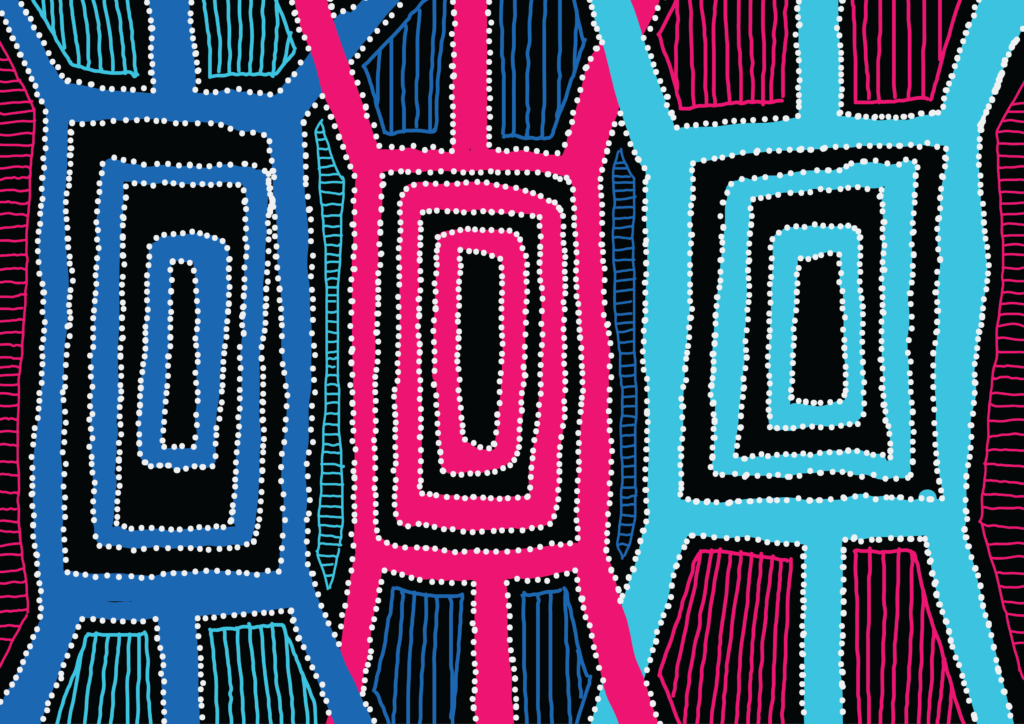
Image: Code For Australia – artwork by Tyrown Waigana
Learn more about Code for Australia’s Reconciliation Action Plan
The gap has loomed too large for too long, but we won’t close it overnight

Koskela believes in a Reconciled Australia and their team has been working hard to that end for over a decade by collaborating with a range of First Nations artists and art centre partners. For First Nations Impact Specialist (formerly at Koskela) and proud Koori woman Zoe Sims, the RAP process within Koskela has been an incredibly collaborative and immersive one:
“Australians live on ancient lands that have borne witness to the world’s oldest continuing culture. Our nation’s recent history is full of trauma, and in front of us lies a long and complex road towards healing. Be Brave, Make Change is exactly what Australia needs to do.
“The journey from development to implementation has been a very collaborative process whereby myself and our RAP Working Group undertook yarning sessions focusing on each of the core pillars of reconciliation: respect, relationships and opportunity.”
One key initiative that Zoe shared, was implementing ‘WOW’ or Word of the Week:
“Each Monday during our team-wide huddle, I share a word – usually in Darug, which relates to things we are doing, current events, celebrations etc. I see this as a great way to re-centre First Nations’ languages within our personal and professional lives, actively engaging us all in the traditional languages of the lands on which we live, work, and learn.”
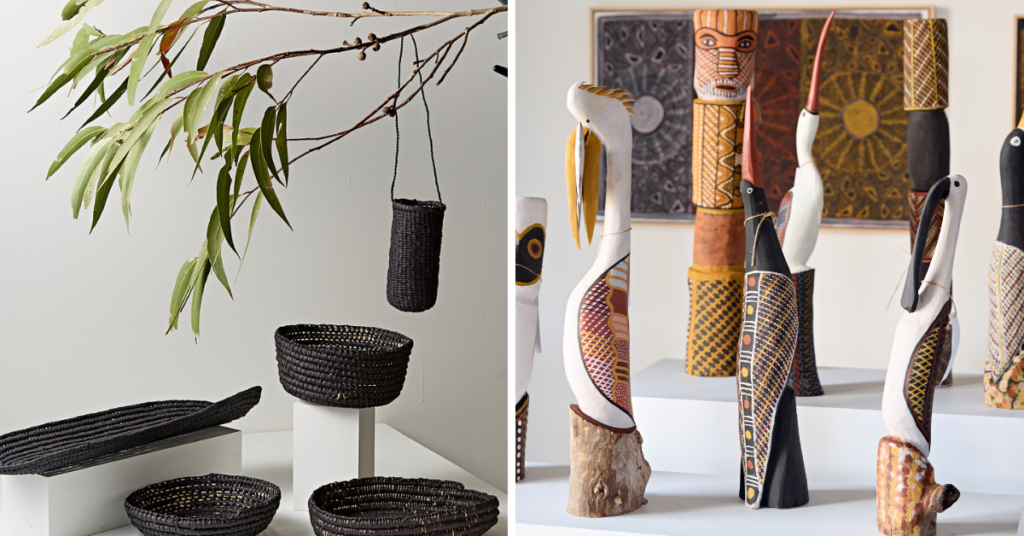
Image: Koskela exhibition – Strong Tiwi
We all profit from stolen land, so we must pay our dues
The way Future Super sees it: we all work on, and thus profit from, stolen land.
“The stealing of this land from Aboriginal and Torres Strait Islander peoples started centuries of cultural desecration and genocide. We can’t claim to want a future free from inequality, and not reckon with the facts of our history.
“If we are to benefit from a society that is inherently unfair, it is our duty to rebuild it until that society is fair.”
For the team at Future Super, developing a Reconciliation Action Plan was an essential step on that path, and has resulted in a business that has matured considerably and learned so much in the process.
“Initially, our focus was on listening and learning; helping us to build relationships and collaborate with Aboriginal and Torres Strait Islander communities to ensure that our investments, campaigning, advocacy, and support is of service to communities.
“Our purpose is to create a future free from climate change and inequality, and reconciliation with First Nations Peoples is integral to that. Climate justice cannot happen without First Nations’ justice.”

Image by fauxels on Pexels
Representing our communities’ values
For a movement as ostensibly values-driven as the B Corp movement, Beyond Bank added that being part of the Reconciliation Impact Circle has accelerated their understanding of inclusivity and reconciliation as a critical part of doing business.
“Reconciliation is a key social issue that customers and other stakeholders care about, and it requires change from everyone, whether that be a change in attitudes or to better understand our First Nations’ culture and histories.
“As businesses, we can help influence that change and create a more culturally safe work environment that embraces our diversity and honours our differences so that we can better represent the communities we serve.”
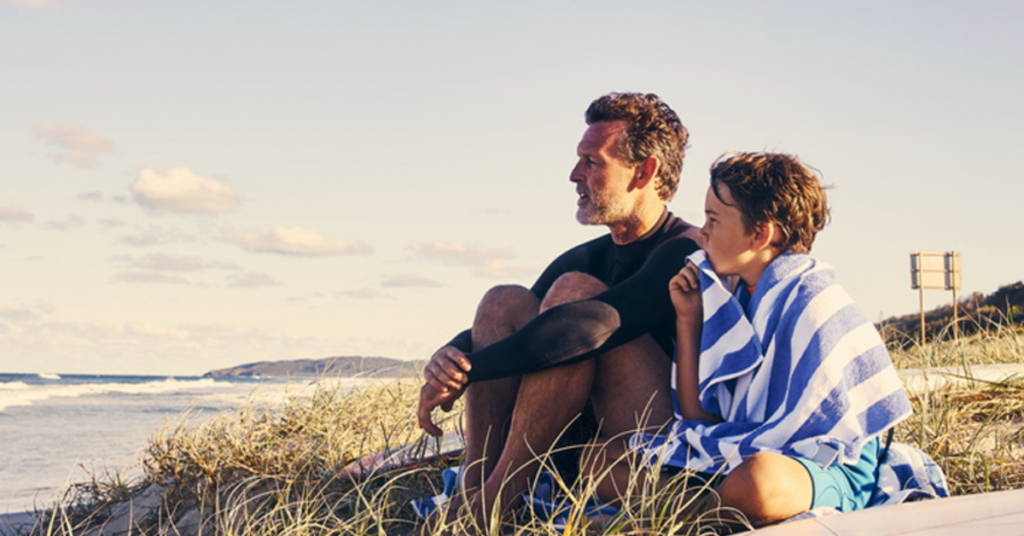
Image: Beyond Bank
Moving forward as a movement
We know that change is incremental, and progress is often not linear. We also know that for change to be meaningful and transformative, it takes time.
As a movement founded on high standards of environmental and social impact – our community is in a privileged and somewhat powerful position to lead reconciliation efforts and use business as a mechanism to fight against injustice. But we have to be prepared to walk the walk.
“Don’t talk about it if you’re not going to be about it, because we are done with that—that is no longer acceptable. It is unimpressive and insulting to speak up without action.”
— Dr. Ellonda Williams
To sustained action and tackling the unfinished business of reconciliation, together.
Thank you to these members of B Lab’s Reconciliation Impact Circle for sharing these initial insights on the path to reconciliation. We will be sharing more over the coming year on our website and blog.
If you are interested in joining the conversation about reconciliation and implementing a RAP, head over to the online community.
